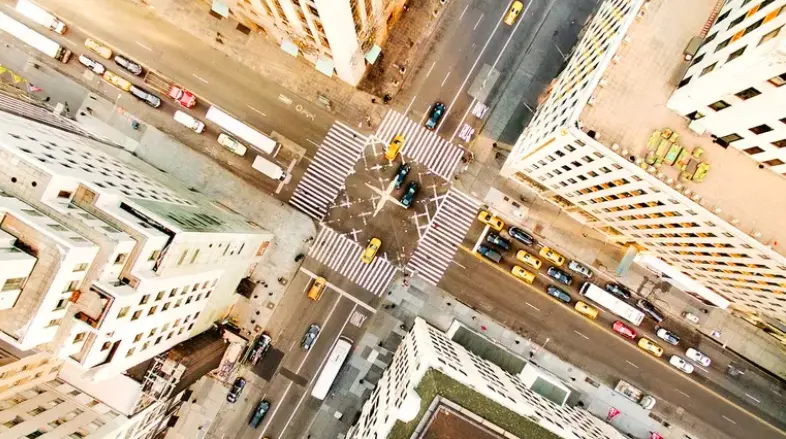Local Law 18 significantly limits the option of short-term rentals, such as those offered by Aibnb and Vrbo, causing a spike in demand and prices for hotel rooms
New York City foresees a drastic drop in short-term rentals and presumes an increase in tourist accommodation prices because of Local Law 18. This measure, adopted in January 2023 and implemented in September, imposes several restrictions on short-term rental platforms such as Airbnb and Vrbo that has led to a decrease of more than 80% in the number of such rentals available from August through October 1, 2023.
The scenario was described as predictable following the implementation of the law, which demands that owners of short-term rental units register their properties and prohibits accommodation platforms from processing transactions for unregistered leases. It also prohibits short-term rentals unless the permanent resident is present during the lease and mandates that the host “maintain a common household with a renter,” in layman’s terms: “no locks,” The Atlantic reported.
These regulations make it difficult for visitors to stay, impacting not only tourists, but also the city’s business sector. As a result, demand for hotel rooms is growing and the lack of supply may lead to higher prices for tourist accommodations or as one industry executive with 24 properties in charge warned real estate publication BisNow: Local Law 18 “will absolutely increase the demand for hotel rooms.”
Airbnb called these restrictions a “de facto ban” on a lucrative booking business model that according to New York Times data, in 2022, generated USD 85 million in the city.
Local Law 18
The harsh restrictions are in place in an attempt to mitigate the problems that short-term rentals can cause in local communities, such as excessive noise, trash generation, danger to neighborhoods and displacement of local residents.
According to data from Wired, more than 40,000 Airbnb hosts currently operate in New York, of which 22,434 rent short-term spaces, defined by stays of less than 30 days. These accommodations are often located in coveted areas of the city, which can contribute to housing shortages and rising prices, as Murray Cox, founder of Inside Airbnb, argues.
Experts in municipal law indicate that the implementation of the new law will provide a more coherent and effective legal framework to solve chronic problems in the city and have highlighted that this regulation represents a milestone in urban legislation and will set an important precedent for other cities.
In fact, New York City, over the last decade, has implemented other restrictions on the supply of tourist accommodations. In 2010, youth hostels were banned, resulting in the closure of 55 establishments in the city.
The latest blow came in December 2021 when the city council complicated the process for building hotels throughout the city by requiring them to acquire a special permit, resulting in the failure to file any special permit applications in the last 12 months.
These restrictions, in theory, are intended to make room for manufacturing jobs and to support the hotel workers’ union, the Hotel Trades Council, which has lobbied in the past to limit the construction of new, usually non-unionized, hotels. As highlighted by The Atlantic, the council calculated that “limiting the development of such hotels would tend to generally raise room rates and bolster high-end ones where many of its workers are employed.”
Airbnb adapts
Despite the new restrictions, Airbnb is not giving up and is looking to collaborate with the city. Theo Yedinsky, the company’s global policy director, has expressed a desire to work with authorities to define “sensible” rules regarding short-term rentals. In addition, he reports that he will cancel and refund bookings in unregistered accommodations as of December 2, 2023, Wired reported.
Separately, the executive director of New York’s Office of Special Enforcement, Christian Klossner, revealed that as of August 28, 3,250 applications for registration had been submitted, of which 257 had been accepted in a sign that Airbnb is continuing to adapt. Its Q2 2023 revenue was USD 2.5 billion, up 18% year-on-year, and nights and experiences booked on the platform were up 11% over the same period.
It is important to note the crucial role tourists play in New York’s economy. During the COVID-19 pandemic, the reliance on visitors became evident when in the fall of 2020, there were, according to The New York Times, “heartbreaking scenes from across the city that laid bare the devastating impact of the absence of tourism.” In the absence of travelers, cab drivers could not rely on regular traffic from airports, restaurants laid off workers and many stores closed their doors.

